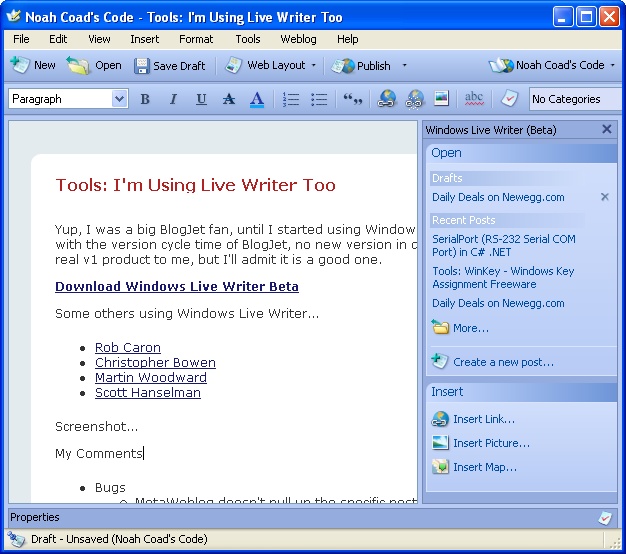Jakarta’s water crisis, whose fault?
The company refused to be blamed:
“The massive silting that broke the pump in Pulogadung was caused by the declining quality of water. We fixed the pump and parts of the pipeline network,” Yosua said. “This shortage is not entirely our fault.”
He said it would take more time for water to reach areas located farther from the main pipelines, which had been empty for days.
“And there are people in several neighborhoods in North Jakarta who collect water from hydrants too, and this makes [the distribution of water] even worse,” Yosua added.
Aetra Air Jakarta said it was becoming increasingly difficult to provide millions of Jakartans with potable water.
“The city has become overpopulated, and the levels of pollution have increased exponentially,” Yosua said. “These two factors greatly contribute to water shortages in the city.”

Consumers are entitled to water services based on the service level as determined by law (if there are components of the service levels which are based on contracts, then they will not apply, as the law automatically derogates them). In Indonesia, water quality level is determined by the decree of the ministry of health 907/MENKES/SK/VII/2002 and Government Regulation 16/2005 (GR 16/2005) Article 6.2. In Jakarta, the continuity of water services is guaranteed by Regional by Law 13/92 and 11/93.
If any of these service levels are violated, based on GR 16/2005, consumer shall have the right to compensation. Article 67.1.a and 68.2.e of GR 16/2005 stipulates (in Bahasa):
(1) Setiap pelanggan air minum berhak:
a. memperoleh pelayanan air minum yang memenuhi syarat kualitas, kuantitas, dan
kontinuitas sesuai dengan standar yang ditetapkan;
b. mendapatkan informasi tentang struktur dan besaran tarif serta tagihan;
c. mengajukan gugatan atas pelayanan yang merugikan dirinya ke pengadilan;
d. mendapatkan ganti rugi yang layak sebagai akibat kelalaian pelayanan; dan
e. memperoleh pelayanan pembuangan air limbah atau penyedotan lumpur tinja.
Hak dan Kewajiban Penyelenggara
Pasal 68
(1) Setiap penyelenggara berhak:
a. memperoleh lahan untuk membangun sarana sesuai dengan peraturan perundangundangan;
b. menerima pembayaran jasa pelayanan sesuai dengan tarif/retribusi jasa pelayanan;
c. menetapkan dan mengenakan denda terhadap keterlambatan pembayaran tagihan;
d. memperoleh kuantitas air baku secara kontinu sesuai dengan izin yang telah
didapat;
e. memutus sambungan langganan kepada para pemakai/pelanggan yang tidak
memenuhi kewajibannya; dan
f. menggugat masyarakat atau organisasi lainnya yang melakukan kegiatan dan
mengakibatkan kerusakan prasarana dan sarana pelayanan.
(2) Setiap penyelenggara berkewajiban untuk:
a. menjamin pelayanan yang memenuhi standar yang ditetapkan;
b. memberikan informasi yang diperlukan kepada semua pihak yang berkepentingan
atas kejadian atau keadaan yang bersifat khusus dan berpotensi akan
menyebabkan perubahan atas kualitas dan kuantitas pelayanan;
c. mengoperasikan sarana dan memberikan pelayanan kepada semua
pemakai/pelanggan yang telah memenuhi syarat, kecuali dalam keadaan memaksa
(force majeure);
d. memberikan informasi mengenai pelaksanaan pelayanan;
e. memberikan ganti rugi yang layak kepada pelanggan atas kerugian yang
dideritanya;
f. mengikuti dan mematuhi upaya penyelesaian secara hukum apabila terjadi
perselisihan; dan
g. berperanserta pada upaya perlindungan dan pelestarian sumber daya air dalam
rangka konservasi lingkungan.
(3) Pemberian ganti rugi sebagaiman dimaksud pada ayat (2) huruf e diupayakan
berdasarkan penyelesaian di luar pengadilan atau melalui pengadilan.
(4) Upaya penyelesaian di luar pengadilan sebagaimana dimaksud pada ayat (3)
dilakukan dengan arbitrase atau alternatif penyelesaian sengketa sesuai dengan
peraturan perundang-undangan.
From the legal point of view, consumer has the right to receive the continuity, quality and quantity of water as prescribed by law. They should be compensated if these rights are interrupted or not fulfilled due to the negligence committed by water undertakers. GR 16/2005 above also prescribes that water undertaker must pay a decent compensation to consumer for the loss they sustained. Although GR 16 is not particularly clear on what it means by ‘loss’ but this is likely to be a term for ‘violation of service levels’.
Hence, under the law, ‘whose fault’ is not really the question for consumer. GR 16 does not differentiate whether the fault lies on the part of the bulk water supplier (in this case, PT Jasa Tirta) or the treatment and distribution facility (in this case, Palyja or Aetra). What the law require is for the consumer to be compensated, irrespective of whose fault it is.
'Whose fault’ is more a question for the government. The government is the one responsible to provide accountability mechanism in response to the complicated structural arrangement in the water sector. The government should determine where the liability lies and direct the compensation fund from the liable party to consumer.
More in this issue: my interview with Kompas (in Bahasa).
Related Posts:
14 Disturbing Facts about Jakarta's Water
Supreme Court Decision on Water Monopoly in Batam
Water companies duty to satisfy reasonable demands



















![Reblog this post [with Zemanta]](http://img.zemanta.com/reblog_e.png?x-id=c0d3c899-d600-4bfe-80e9-676325fbe389)
![Reblog this post [with Zemanta]](http://img.zemanta.com/reblog_e.png?x-id=d1de10b5-1bc8-404c-9379-0d5184ef675f)
![Reblog this post [with Zemanta]](http://img.zemanta.com/reblog_e.png?x-id=7c5b8611-8a35-4791-bc06-894619d35e4c)

Recent Comments